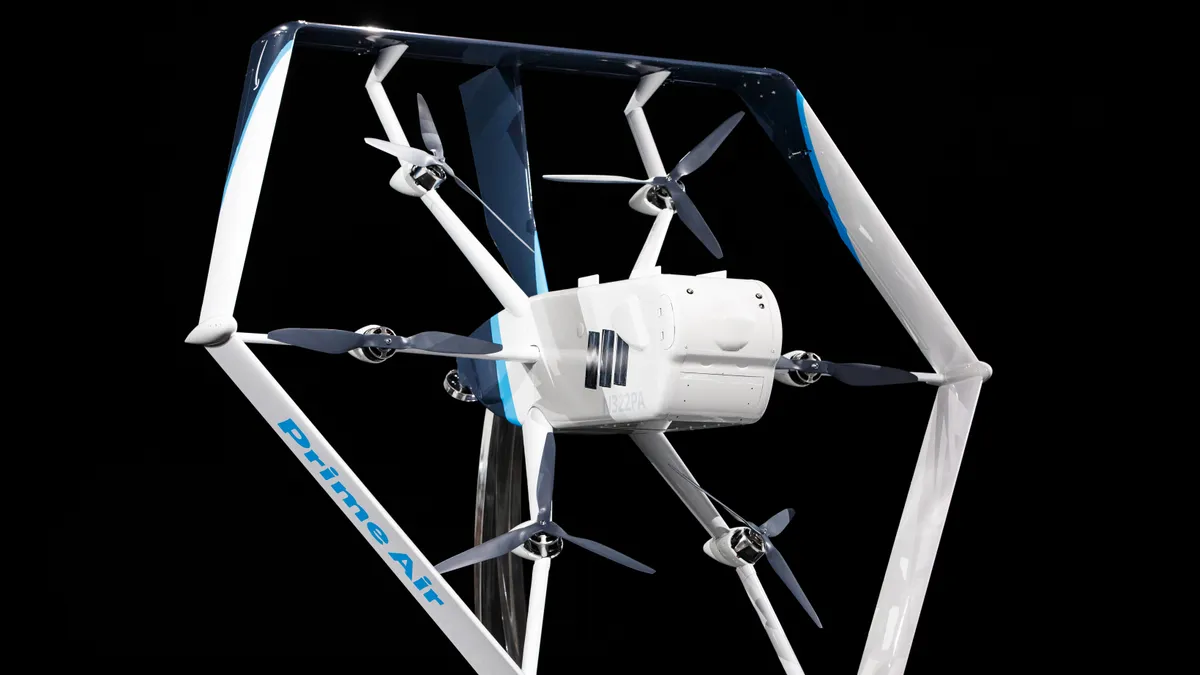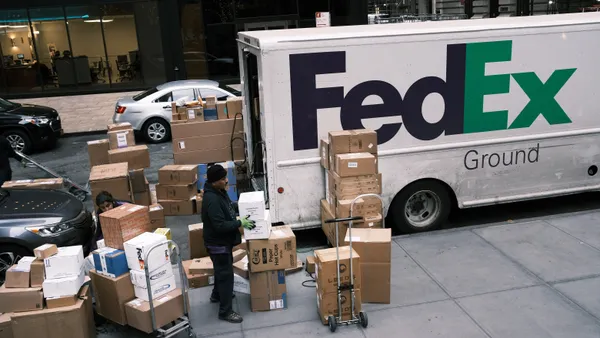Dive Brief:
- Amazon has applied for a waiver with the Federal Aviation Administration (FAA) that, if approved, would allow the retailer to begin drone delivery in the United States, according to documents filed Thursday on the federal register.
- Amazon's Prime Air service would use drones capable of carrying up to five pounds to deliver packages to customers within 30 minutes or less, according to the retailer's petition. Amazon frames this as also being beneficial for the FAA, saying the agency would be able to use it to collect data on the future of drone cargo delivery.
- "There is no set timeline for approval," an FAA spokesperson told Supply Chain Dive in an email. "Approval time depends, among other things, on the number and type of comments we receive, and the thoroughness of a company’s plan to operate safely under the requested exemptions." Amazon's petition for exemption is open for public comment until Aug. 28.
Dive Insight:
Drones, for the last few years, have been viewed as the future of last-mile delivery for a variety of organizations ranging from 3PLs to hospitals. These flying couriers could also make it easier to provide same-day delivery in rural areas, McKinsey and Company wrote in 2016.
The waiver application said Amazon will begin drone flights in "areas with low population density," it said. It's hard to know details beyond that, as Amazon did not respond to a request for comment on what the early application of Prime Air might look like.
The flight path to the customer will be determined by Prime Air Unmanned Traffic Management based on the customer's delivery location, the package weight, the current environmental conditions, air traffic and airspace constraints, and takeoff and landing location constraints.
The flight would happen beyond the visual line of sight — a constraint that has held back commercial drone operations in the U.S. — and it would navigate autonomously. Customers will mark the delivery location with a "unique marker" and the drone will use its onboard sensors to ensure the delivery area is clear. "If that condition is met, it will descend to a safe delivery height, hold in a hover position and, barring any other obstructions or hazards being sensed, release the package," the application explains.
The retailer's cargo drone was unveiled by Jeff Wilke, the CEO of consumer worldwide, earlier this year at Amazon's re:MARS.
"While five pounds may not sound like a lot," Wilke said, "it represents between 75% and 90% of the packages that Amazon delivers."
Amazon is not the only company with its eyes on drone delivery. UPS applied for the same exemption with the FAA last month and Alphabet's Wing Aviation was given clearance in April to begin deliveries from commercial businesses to personal residences in Virginia.
These recent applications and approvals are a sign of significant momentum after multiple companies, along with state and local governments, worked to test the feasibility of various drone applications in the FAA drone Integration Pilot Program — the effort is currently in its second year out of a planned three. Wing's approval earlier this year was a sign the FAA is confident in what it has seen in this early testing, and these newer applications show other companies are eager to keep up.













